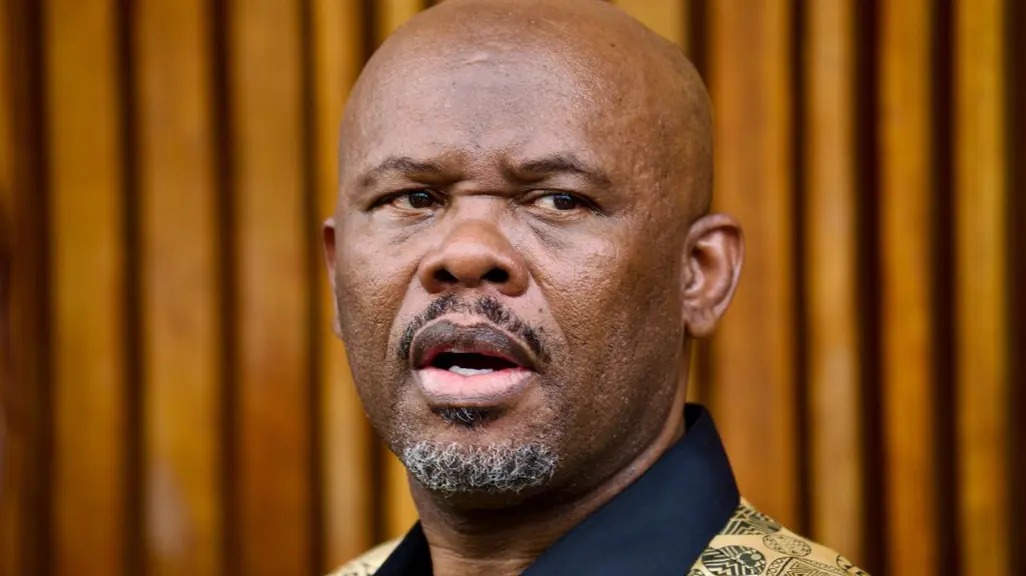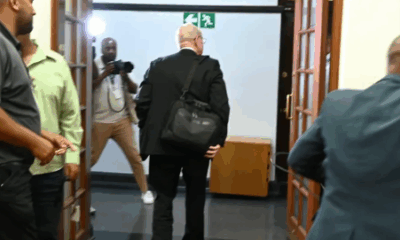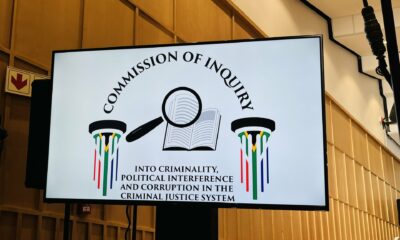News
Sibiya says he was targeted after investigating former Crime Intelligence boss Mdluli

Sibiya tells MPs: “I made enemies in Crime Intelligence”
South Africa’s Deputy National Commissioner, Lieutenant-General Shadrack Sibiya, has claimed his suspension and dismissal from the police years ago were not the result of misconduct but rather the price he paid for investigating one of the most powerful men in the force, former Crime Intelligence boss Richard Mdluli.
Appearing before Parliament’s ad hoc committee this week, Sibiya said his career was derailed by political interference, factional rivalries, and false accusations that surfaced soon after his team arrested Mdluli more than a decade ago.
A career built on investigation and integrity
Sibiya joined the South African Police Service (SAPS) in 1989 as a young constable in Nelspruit and rose steadily through the ranks. By the early 2000s, he had earned a reputation for tackling organised and commercial crime, first through the Scorpions and later the Hawks. His work included high-profile investigations into cash-in-transit heists and syndicate murders that brought him national attention.
When he led the probe into Mdluli’s alleged abuse of power at Crime Intelligence, Sibiya said the backlash was swift and brutal. “That is when I made a lot of enemies within Crime Intelligence,” he told MPs.
Charges, suspension, and years in the wilderness
Sibiya testified that after Mdluli’s arrest, multiple cases were opened against him. He was suspended and charged with fraud, corruption, and involvement in the so-called “illegal rendition” of Zimbabwean nationals.
He maintains the charges were fabricated to destroy his reputation. During his court appearances, even the prosecutor admitted there was no evidence to justify the case. “He said he was instructed to keep the matter under control,” Sibiya recalled.
He was eventually dismissed from SAPS, but the Labour Court later ruled that his firing had been unfair and politically motivated, ordering his reinstatement in 2022.
Return to service and new responsibilities
Before his reinstatement, Sibiya worked briefly at the City of Johannesburg, where his appointment drew public scrutiny. He defended the process as legitimate and confirmed that the Public Protector cleared him of any wrongdoing.
When he rejoined SAPS, he accepted a new role leading the organised crime unit rather than returning to his old post. A year later, he was promoted to Deputy National Commissioner for Crime Detection, the second-highest position in the police service.
Now 57, Sibiya told MPs that he has spent his entire adult life in law enforcement and remains committed to restoring integrity in policing. “I joined the police when I was 20 years old. I grew up in the police. My job is that of the police,” he said.
Echoes of the past in today’s SAPS
The parliamentary hearing was part of a wider inquiry into political interference and factionalism within the police, following explosive claims made earlier this year by KwaZulu-Natal commissioner Lieutenant-General Nhlanhla Mkhwanazi.
Sibiya warned that similar internal battles still plague SAPS today. “What I am seeing now is the same situation I faced before,” he said, hinting that political meddling continues to undermine policing from within.
His testimony has reignited public debate about corruption and loyalty within South Africa’s law enforcement agencies. On social media, many South Africans expressed both frustration and admiration, frustration at the recurring factional infighting and admiration for Sibiya’s resilience after years of professional and personal upheaval.
For Sibiya, the message to Parliament was clear: he wants to move forward, but not without accountability for the forces that once tried to silence him.
Follow Joburg ETC on Facebook, Twitter, TikT
For more News in Johannesburg, visit joburgetc.com
Source: IOL
Featured Image: EWN



























